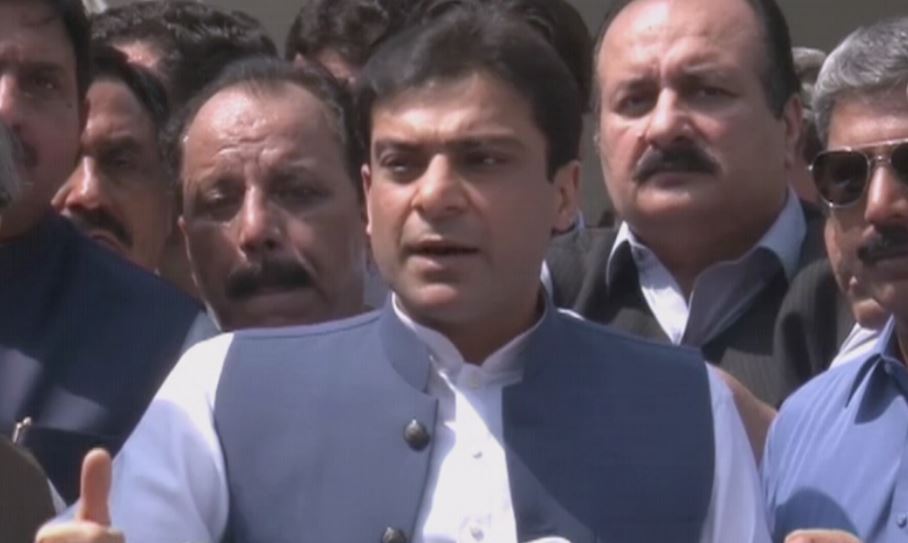Lahore: The Lahore High Court (LHC) on Friday directed National Assembly Speaker Raja Pervez Ashraf to administer the oath to Punjab Chief Minister-elect Hamza Shehbaz tomorrow (Saturday) at 11:30am.
The court issued the nine-page written verdict after the PML-N leader sought its intervention for a third time over his oath-taking process.
Earlier today, Hamza had filed a petition seeking the administration of oath to him by “a person nominated by the court” owing to the “defiant attitude” of President Arif Alvi and the province’s governor, Omar Sarfraz Cheema.
At the outset of the hearing, Justice Jawad Hassan asked about the order passed by the LHC CJ. Subsequently, Hamza’s counsel, Khalid Ishaq, read the order out loud and told the court that the president and the Punjab governor were blatantly violating the Constitution.
Justice Hassan remarked that no one should have the audacity to flout the court’s directives. “This concerns the respect of the high court and Pakistan’s judiciary,” he said.
He also regretted the fact that two orders passed by the high court were not implemented, adding that he would make a decision based on the Constitution.
Hamza’s lawyer told the court that LHC had issued directives for holding the chief minister’s election. He added that the governor was refusing to administer the oath to the chief minister-elect in contravention of the court’s directives.
When the hearing continued after a short break, Justice Hassan asked why the petitioner had not made the president and the Punjab governor respondents in the case. At this, Hamza’s lawyer replied by saying there was no need to make them respondents in the case.
Meanwhile, Punjab Additional Advocate General Umair Niazi contended that proceedings could only move forward once the Punjab advocate general was issued a notice under Article 27-A of the Constitution.
“The Punjab governor has sent the matter to the president. How can he administer the oath when the matter is with the president?” he asked.
He told the court that the Senate chairman could also administer the oath. “But according to my information, he is currently not in the country,” he said. He added that the president or the Punjab governor could administer the oath or appoint a representative to do the same.
The court had reserved the verdict after hearing the arguments.

















